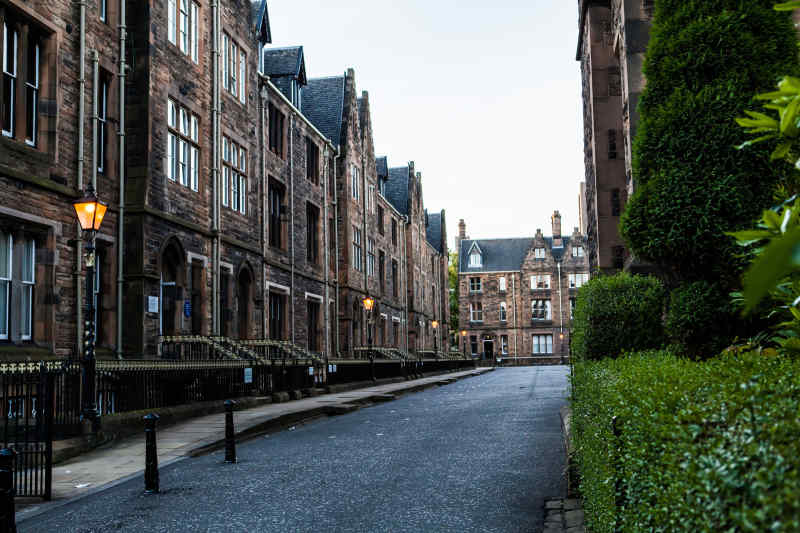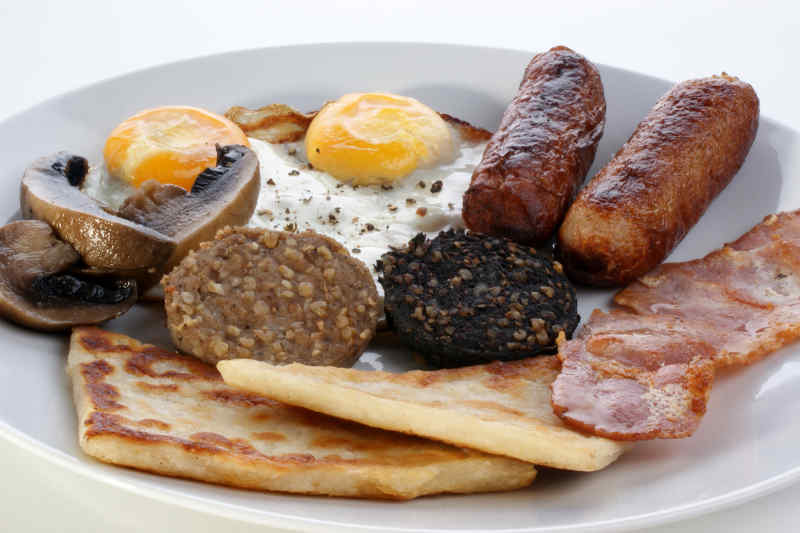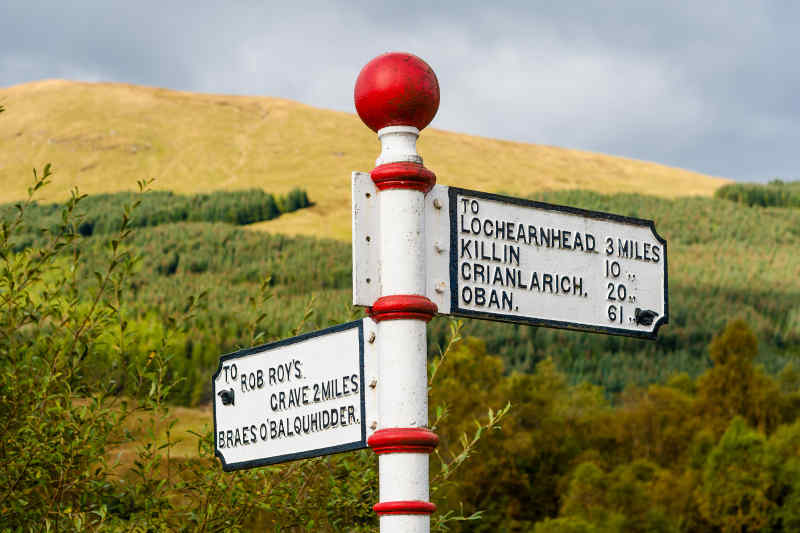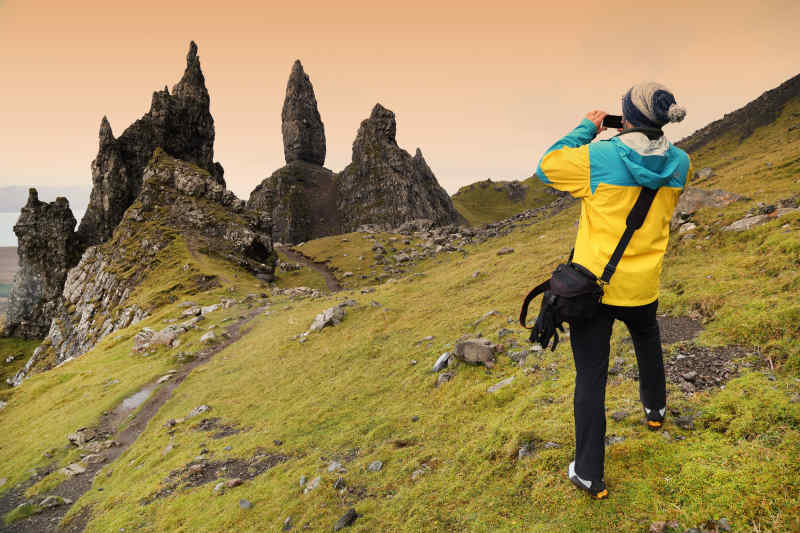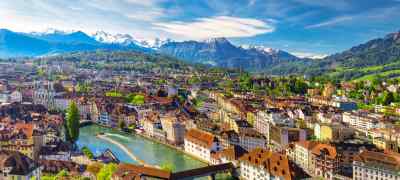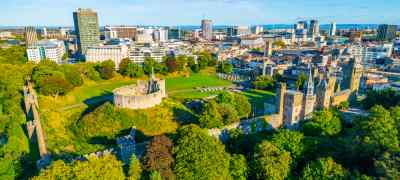By Amanda Little
Exploring a new country can be exhilarating! But it can also be a little intimidating. You want your vacation to go smoothly while abroad, so why not read up on a few of these tips to visiting Scotland, so you know before you go.
Culture and Customs
The people:
Scotland is a warm and inviting country. Its people want to make you feel at home, and going there you'll find enthusiastic friendliness in most places. Whether it's asking for directions, looking for the perfect souvenir, or sitting in a restaurant or pub, you'll be met with smiles and friendly, lively conversation.
The parties:
The Scottish know how to throw a truly amazing party, and don't worry, you're invited! You can attend huge Hogmanay, or New Year's Eve, street parties, high-energy bashes for St. Andrew's Day, charming feasts for Burns' Suppers, amazing Highland Games, and the rhythmic Edinburgh Military Tattoo on Glasgow Green. Getting together for good food and company, 'having a blether', and sharing in the fun is part of what makes Scotland an exciting destination.
The Weather
Hot, cold, and sometimes both.
Expect a warm a cozy welcome from Scotland's people, but not always its skies. Scotland can sometimes experience sweltering summers and frigid winters. While packing for Scotland, make sure to include a sweater, even in the summer, and always have an umbrella on you, just in case.
Money
Cash, currency, and credit cards.
Scotland's currency is the pound, which is only behind the US dollar by a small amount, so buying while in Scotland won't be too tricky. Although, a few important things to note while spending your notes is how to tip, and more importantly, how big your bills should be.
Tips:
Tipping isn't expected in pubs or bars where table service hasn't been provided. If you're in a pub and had a meal brought to your table, or in restaurants of course, the usual tip is 10%, or 15% if you're in a fancy setting. While dining, a meal under £10 is cheap, £10 - £20 is mid-range, and over £20 is high-end. Pints and whisky usually go for about £3 - £4, and at the end of the night when you need a lift home, taxi tips are usually rounded up to the nearest pound.
Notes:
Travelers may want to bear in mind that many shops will not accept 50 notes. Instead of going to a bank to have them exchanged, it's much easier to just get all of your cash in 20 notes or under. Luckily, ATMs are readily available and credit cards are widely accepted. Its still advisable to carry cash though, because some restaurants and a few B&Bs don't accept credit card.
Transportation
From here to there.
If you're on an organized vacation, you probably won't have to worry yourself over transportation. If you'll be escorting yourself though, it's good to brush up on street rules and public transit knowledge.
Cities:
The easiest way to get around big cities like Edinburgh of Glasgow is walking. If you plan to stay in highly populated areas, making arrangements to take trains, buses and coaches, and taxis isn't too difficult. However, if you're looking to branch out into the highlands, you will find railroads all but vanish, bus trips are far and few in between, and taxis will become pricey, if they're even willing to take you out that far. Your best, if not only, option, is to rent a car.
Highlands:
Driving in Scotland will give you the freedom it takes to see the raw beauty of the highlands, but it may take some time to acclimate. The steering wheel will be on the opposite side of the car, and everyone drives on the left side of the road. You'll have to look for petrol stations, not gas stations, and prices for gas in Scotland are among the highest in the world. The further you travel from Central and Eastern Scotland, the higher the prices will go. If you truly want to see the highlands and are unwilling to drive or pay for fuel, an escorted trip is likely your best choice.
Food
Hearty food for hearty people.
Rare few things are as easily recognized as Scottish than haggis. The Scot's culinary scene was laden with sugar, chocolate, red meat, salt, and butter until recently. There has been a rise of veggies, fish and whole-meal breads in the Scottish palate, due to elite chefs, like Gordon Ramsey leading the way.
Breakfast:
In Scotland, you can expect a full breakfast usually consisting of porridge, toast, a halved tomato broiled with cheese on top, bacon, hash browns, sausage, mushrooms, baked beans, eggs, and pudding. Now that's a mouthful.
However, some of these staples are a bit different across the pond. Instead of bread or hash browns, you can expect a tattie, which is a potato scone, and Lorne sausages, a square pressed sausage, instead of the usual breakfast sausages. Bacon will likely be the biggest difference, since it is more like thinly slices ham than the heavily salted and crunchy bacon in the states.
Lunch and Dinner:
To find the heart-warming food of Scotland, you may want to try a pub before an upscale restaurant. It’s among the most popular option for meals, and tends to be not only cheaper but better food too! The best pubs though will always be the privately owned establishments, so try to avoid the big chains if you’re looking for the truest taste of Scotland. They’ll serve haggis of course, but you might want to try steak pie, which is steak and sausages stewing in gravy with crispy puff pastry on top, and fish and chips, which is a classic British dish but still a Scottish favorite.
Drinks:
For those looking to try out a new brew in Scotland, you may want to know that their beers tend to be considerably stronger than the average beer, and are almost always served up by the British pint, which is 26 fluid ounces instead of the American 16. So before drinking, you may want to consider your tolerance, and how long you’re willing to stay! Because of this, and the huge difference in taste in Scottish beers, bartenders are usually happy to pour you a small taste before you commit to a full pint, so don’t hesitate to ask! Although keep in mind, they (unfortunately) don’t offer the same taste of their wonderful single malt whiskys.
If you’re not looking for some liquor, you should absolutely try the legendary Scottish Irn Bru, which is a soft drink that always seems to escape description. The recipe for this fascinating drink is so precious, its only known by two living people at any point, and saved in a Swiss bank vault!
Language
English...mostly.
Luckily for those visiting from the US, English is widely spoken. While many Scottish locals are bilingual and able to understand Gaelic, rare few have it as their sole language, and they are usually spread out in the far reaches of the highlands. Although trying to understand what is being said through slang and heavy accents makes it seem like they might not be speaking only English!
Here are a few local Scottish sayings that will help as icebreakers when talking to the locals.
Safety
In case of emergency.
Scotland has a very low rate of crime, but if you do find yourself in need of assistance, their emergency number is 999, which will be able to send you the Police, Fire and Rescue, Ambulance, or Coastguard, depending on your need. You can also go to the Embassy at any point for help while abroad.




